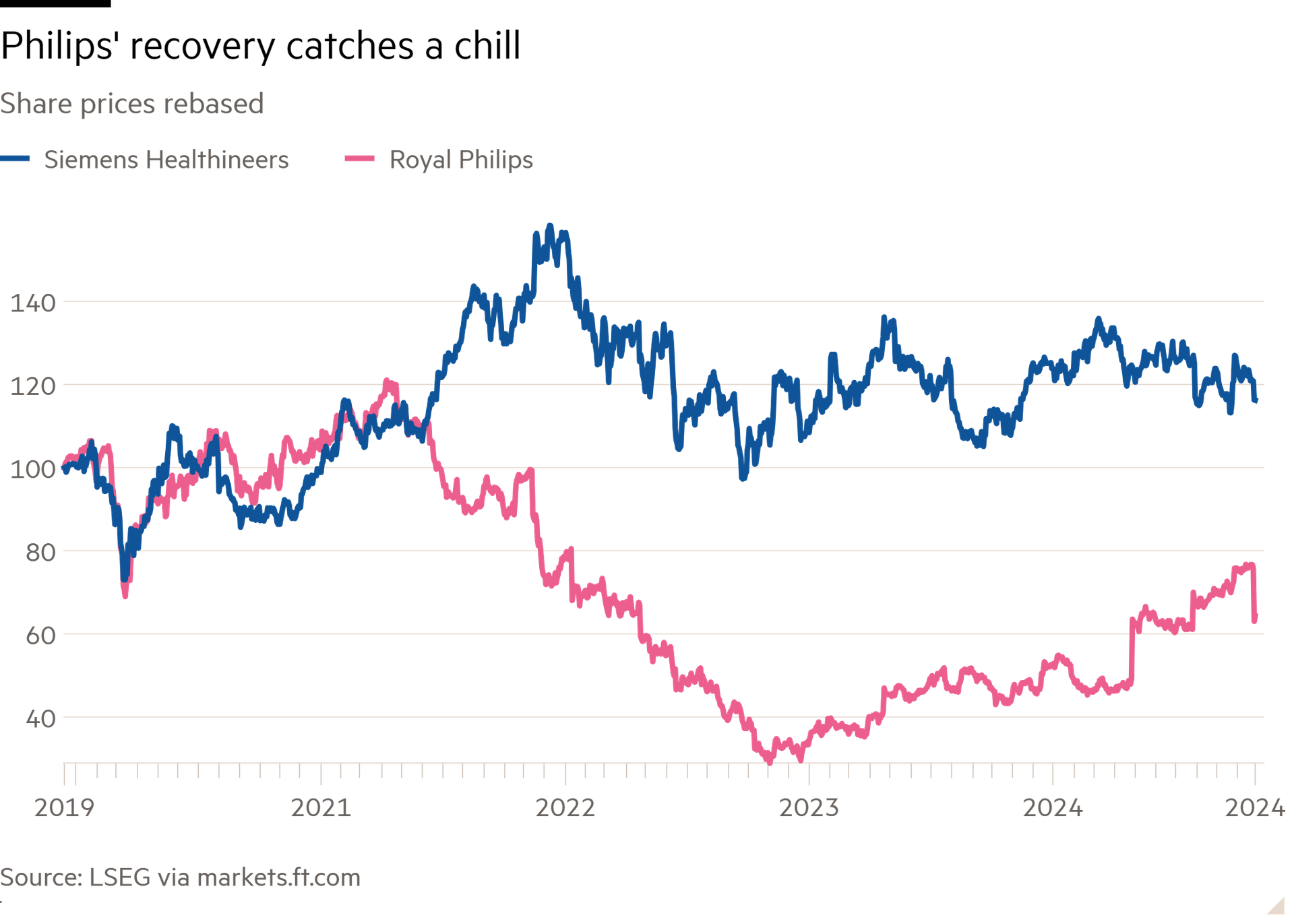Some companies, it seems, receive the benefit of the doubt even if their performance is a little ho-hum. They can, for example, highlight weak Chinese demand and get away with a mere share price ripple. Other stocks take a razor-sharp cut on every lump and bump.
Philips is a case in point. Investors in the Dutch healthcare conglomerate, which makes everything from diagnostic machines to electric shavers, had until this week been enjoying a restorative patch. Legal woes over malfunctioning sleep apnoea machines had been resolved faster and more cheaply than feared, and sales seemed to be heading in the right direction.
But a stumble has undone much of the progress. Philips’ stock has fallen 15 per cent since it released soft third-quarter results on Monday. While Italy’s Agnelli family — who made a big investment in the stock in August 2023 through their public vehicle Exor — is still in the money, this week marks a blow for those who had more recently got behind Philips’ turnaround story.

Investors must be wondering what exactly hit them. The issues Philips highlighted at third-quarter results are hardly unheard of. An anti-corruption drive at Chinese hospitals is slowing procurement of diagnostics machines — a headwind that drove guidance downgrades at rivals Siemens Healthineers and GE Healthcare after second-quarter results, points out Lisa Clive at Bernstein. And while a double-digit fall in personal care sales in China is surprising in its magnitude, the weakness of Chinese consumer demand has been widely flagged across industries.
Meanwhile, results outside China are strong. Operating margins remain healthy despite slower than expected sales. Philips does not look expensive, either. It trades on 15 times next year’s — reduced — earnings expectations despite double-digit EPS growth through to 2026, on Barclays estimates. Siemens Healthineers trades on more than 19 times.
The best explanation for the share price reaction is that Philips is suffering from sticky negative sentiment, a malady that can afflict companies that have severely spooked the market in recent history.
Curing it requires not just solving one problem, no matter how major. It requires solving all of them. That’s something that GSK, reporting on Wednesday, will be acutely aware of. Following the resolution of the Zantac heartburn medicine legal overhang, analysts are now fretting over the strength of its vaccine sales.
Traumatised investors require a long period of peace and quiet to recover their composure. Philips cannot afford another jolt to their nerves.